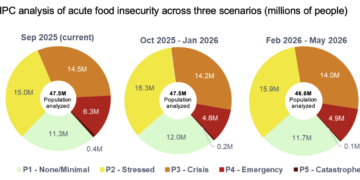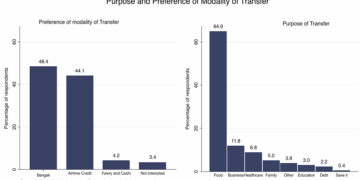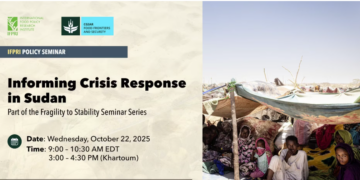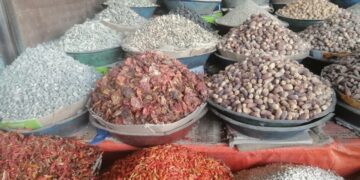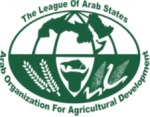Sudan’s humanitarian emergency is worsening amid the country’s ongoing internal conflict, with devastating impacts on food security. The latest Integrated Food Security Phase Classification (IPC) analysis (November 3, 2025) shows that nearly half the population continues to confront high levels of acute food insecurity. Famine (IPC Phase 5) has been confirmed in the cities of El Fasher […]
Can Digital Cash Transfers Serve Those in Active Conflict? Evidence from a Randomized Intervention in Sudan
This paper evaluates the impact of digital transfers on the well-being of households grappling with active conflict in Sudan. Considering the case of Sudan, where active conflict and funding gaps continue to hamper the delivery of humanitarian services, we aim to address the following questions: (i) Can digital cash transfers improve food and nutrition security […]
Informing crisis response in Sudan: From evidence to action
The ongoing war in Sudan—sparked in April 2023 by violent clashes between the Sudanese Armed Forces and the Rapid Support Forces—has produced one of the world’s most complex, protracted, and under-addressed humanitarian emergencies. The country faces widespread displacement, severe and acute food insecurity, institutional fragmentation, and the collapse of essential infrastructure. The need for coordinated, […]
Informing Crisis Response in Sudan
The armed conflict in Sudan, which erupted in April 2023, has created the world’s largest displacement crisis, and has left over 30 million of the 47.5 million Sudanese population needing multifaceted humanitarian assistance. To help inform the crisis response, this policy seminar will bring together researchers, practitioners, and humanitarian organizations working in Sudan to share […]
Essential Commodities Prices, Availability, and Market Actors’ Perceptions September 2025
In September 2025, Sudan’s markets showed relative stability despite conflict, inflation, and weatherrelated disruptions. Cereal and vegetable prices remained broadly stable, while meat, oilseeds, andfuel saw moderate fluctuations. Availability of most essential goods improved slightly, though Darfurstates continued to record the highest prices.The parallel exchange rate rose to about 3,100 SDG/USD, widening the gap with […]
- « Previous Page
- 1
- 2
- 3
- 4
- …
- 7
- Next Page »
